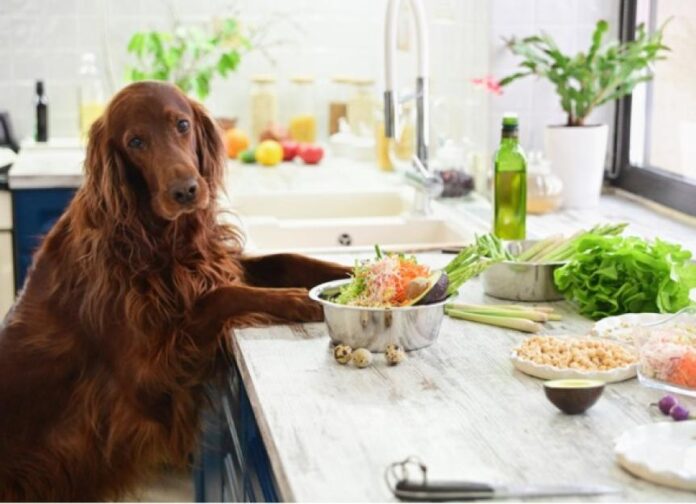The Benefits and Considerations of Homemade Dog Food
Feeding your dog homemade meals can seem appealing, especially when those dishes resemble your own dinner. However, it’s crucial to recognize that a dog’s nutritional requirements differ significantly from those of humans. Transitioning to homemade dog food is a decision that should be made with careful consideration, ideally in consultation with your veterinarian.
For optimal results, enlisting the help of a veterinary nutritionist can provide you with balanced homemade dog food recipes tailored to your dog’s nutritional needs. Not only can this practice enhance your bond with your furry companion, but it can also lead to a healthier diet they’ve been missing. Below is a comprehensive guide to help you navigate this process.
Is Homemade Dog Food Healthy? Understanding the Benefits
Though scientific evidence comparing the health benefits of homemade diets versus commercial dog foods is limited, there are several advantages that make cooking for your dog a worthwhile endeavor:
1. Whole Foods
Homemade dog food allows you to select whole food ingredients, ensuring they are safe and fresh. This also minimizes your concerns regarding food recalls and preparation methods.
2. Minimally Processed Ingredients
When you prepare meals at home, you have the option to serve ingredients raw, steamed, or baked—cooking methods that are far less invasive compared to the processes used in commercial kibble and canned food production.
3. Variety of Fresh Ingredients
Rather than serving the same processed food daily, you can mix and match a variety of ingredients, making mealtime more appealing for your dog.
4. Customizable Recipes
One of the primary advantages of homemade dog food is the ability to tailor recipes to meet your dog’s specific needs based on their age, weight, and health issues, allowing for better weight management and dietary sensitivity.
While cooking for your dog has its benefits, it’s essential to understand that creating a balanced diet is more complex than simply combining protein and vegetables.
What You Need to Know Before Switching to Homemade Dog Food
Before making the switch, consider the following critical points to ensure this decision is in the best interest of your pet:
1. Nutritionally Balanced Diet is Essential
Dogs need a diet that is nutritionally balanced, incorporating the right amounts of calories, protein, fat, vitamins, and minerals. An imbalance can lead to severe health issues, including malnutrition and obesity.
2. Source Verified Recipes
While many homemade dog food recipes are available online, they are not always nutritionally validated. Consult your veterinarian or a veterinary nutritionist for reliable recipes or consider using resources like BalanceIT for professionally formulated recipes.
3. Follow Recipes Rigorously
Precision is crucial when preparing your dog’s meals. Even slight variations in ingredients or preparation methods can lead to nutrient imbalances. Stick closely to the prescribed recipe and consider generating multiple balanced options to diversify your dog’s diet.
4. Use High-Quality Ingredients
Be aware of foods that are harmful to dogs, such as chocolate or grapes, and avoid these toxic ingredients. Purchase high-quality foods that are consistent in quality and origin to ensure the best for your pet.
5. Time Commitment
Preparing homemade meals can be time-consuming. To mitigate this, consider meal prepping by cooking large batches in advance and freezing portions for later use, thus saving time on busy days.
6. Include Dog Supplements
Supplements may be necessary to ensure a balanced nutrient profile, particularly for vitamins and minerals. Seek veterinary advice for appropriate supplements and dosages suitable for your dog’s unique requirements.
7. Gradual Transition to Homemade Diet
Switching diets should be done gradually to minimize gastrointestinal upset. Introduce the new food over several days, and monitor your dog for any adverse reactions like nausea or changes in stool consistency.
If any complications arise, contact your veterinarian promptly for guidance.
By following these guidelines, you can create a healthy and fulfilling homemade diet for your dog, strengthening your bond while ensuring their nutritional needs are met.
Featured Image: iStock.com/glenkar











